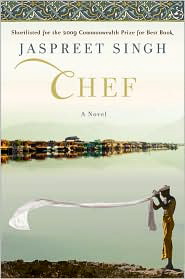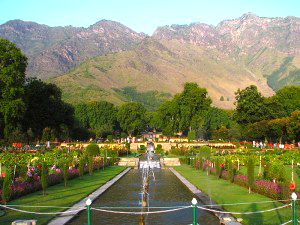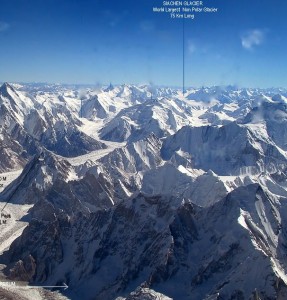Note: This debut novel was WINNER of Canada’s Georges Bugnet Award for Fiction, was SHORTLISTED for the 2009 Commonwealth Writers’ Prize for Best Book, and NOMINATED for three other major literary awards.
“Calling Kashmir paradise does not do [it] justice. The First PM of our country once said (in English): Kashmir is the face of a beloved that one sees in a dream and that fades away on awakening.”
Fro m the opening pages of this kaleidoscopic debut novel, Canadian author Jaspreet Singh works his magic, setting the opening scene on a train from Delhi to Srinagar, in Kashmir. A born story-teller, gifted with the ability to describe the sights, sounds, and smells of his many Indian settings, Singh also creates, at the same time, lively characters and interconnected plot lines which span two generations. Anyone who has read other novels concerned with the partition of India and the perennial conflicts between mostly Hindu India and Muslim Pakistan over the fate of Kashmir knows how complex and emotionally fraught these conflicts are, but Singh explores the conflict through the eyes of Kirpal (Kip) Singh, a chef who once worked for Lt. Gen. Ashwini Kumar, formerly chief of the Northern Command in Kashmir. With his limited focus, Kip is able to convey all the tensions and conflicts of the area without getting bogged down in the logistical technicalities. His vision is personal, and because he is an honorable person, he becomes the conscience of the novel.
m the opening pages of this kaleidoscopic debut novel, Canadian author Jaspreet Singh works his magic, setting the opening scene on a train from Delhi to Srinagar, in Kashmir. A born story-teller, gifted with the ability to describe the sights, sounds, and smells of his many Indian settings, Singh also creates, at the same time, lively characters and interconnected plot lines which span two generations. Anyone who has read other novels concerned with the partition of India and the perennial conflicts between mostly Hindu India and Muslim Pakistan over the fate of Kashmir knows how complex and emotionally fraught these conflicts are, but Singh explores the conflict through the eyes of Kirpal (Kip) Singh, a chef who once worked for Lt. Gen. Ashwini Kumar, formerly chief of the Northern Command in Kashmir. With his limited focus, Kip is able to convey all the tensions and conflicts of the area without getting bogged down in the logistical technicalities. His vision is personal, and because he is an honorable person, he becomes the conscience of the novel.
Kip, who had joined his deceased father’s regiment in Kashmir as a teenager, has been out of the army for fourteen years when, in 1987, he receives a letter from Lt. Gen. Kumar, who is now Governor of Kashmir. The general’s daughter, a small child during the years when Kip worked for him, is now getting married, and the general is requesting that Kip be the chef for the wedding. Kip is disappointed with the contents of the letter, since his departure from the army was not a happy one, nor was it the result of a simple misunderstanding. He has waited fourteen years for an apolo gy that has never come. Nevertheless, he would like to revisit Srinagar, now considered a war zone, and he is happy to do the wedding, always hoping that the general will, at last, recognize that he has been unjust to Kip. Kip has a serious illness, and he also believes that if he does the wedding, the general may respond by helping him get necessary medical treatment.
gy that has never come. Nevertheless, he would like to revisit Srinagar, now considered a war zone, and he is happy to do the wedding, always hoping that the general will, at last, recognize that he has been unjust to Kip. Kip has a serious illness, and he also believes that if he does the wedding, the general may respond by helping him get necessary medical treatment.
Flashbacks of fifteen or more years, to the time of his army service, fill in the blanks in the narrative and show his relationship with Chef Kichen, who is in charge of the kitchen, and as he and the chef ride their bicycles through Srinagar in their free time, they see the Mughal Gardens, an ancient mosque, and the many historic sights of this old city. Chef Kishen regularly fills Kip in on the gossip regarding some of the army wives and their marriages, including one who will be dining at the governor’s house one evening. It is through this woman that Kip later discovers how his father, at the age of nine, had his life saved by a Muslim woman when the partition took place in 1947.
When Chef Kichen makes a  major strategic error by talking too much, he is sent to a remote outpost on the Siachen Glacier, north along the border with Pakistan–a snow field eighty miles long, twenty thousand feet above sea level, and the second coldest place on earth. Kip soon follows him. There among the officers, troops, and the general himself, Kip discovers how the army “works,” the compromises people make, the dishonesties, and the lengths the army will go to gain information from Muslims who might be caught on the Indian side of the border. Even small kindnesses extended to Muslim civilians are punishable. When the narrative returns to the present and the wedding preparations, Kip becomes all too aware that both sides have ratcheted up the rhetoric over the years, and that dinner table conversation may even include unconscionable references to the “N-option.” Muslims have begun suicide bombings, and Indian army corruption still exists.
major strategic error by talking too much, he is sent to a remote outpost on the Siachen Glacier, north along the border with Pakistan–a snow field eighty miles long, twenty thousand feet above sea level, and the second coldest place on earth. Kip soon follows him. There among the officers, troops, and the general himself, Kip discovers how the army “works,” the compromises people make, the dishonesties, and the lengths the army will go to gain information from Muslims who might be caught on the Indian side of the border. Even small kindnesses extended to Muslim civilians are punishable. When the narrative returns to the present and the wedding preparations, Kip becomes all too aware that both sides have ratcheted up the rhetoric over the years, and that dinner table conversation may even include unconscionable references to the “N-option.” Muslims have begun suicide bombings, and Indian army corruption still exists.
Canadian resident Jaspreet Singh, who grew up in Kashmir, endows his novel with the ring of authenticity, and his descriptions and stories within the various plot lines keep the reader involved on several levels at once. Though the plot lines involving love interests sometimes become overly romantic and even melodramatic, the novel does a fine job recreating the conflicts in an area of the world which may never find peace. The author keeps his plots relatively simple and writes with both sensitivity and clarity, and he gives the reader some credit by leaving him to draw some important conclusions on his own.
This accomplished first novel has a broad reach, and the author does a remarkable job of holding together his plots and letting the reader know where he stands, without becoming a moralist or an apologist. Ultimately, the author, in his own writing, follows the advice which Chef Kichen gives Kip when he first starts work: “Pay attention to simple things…If one cannot deal with a simple dish properly, there is no way one will be able to handle the more sophisticated…There is no such thing as the set taste of a tomato. Taste lies in…the way you cut it.” Jaspreet Singh here works wonders with the simple things and lets the sophisticated and subtle reveal themselves.
ALSO by Jaspreet Singh: HELIUM
Notes: The author’s website, which includes his photo, is here: http://jaspreetsinghauthor.blogspot.com
The photo of the Mughal Gardens in Srinagar is from http://en.wikipedia.org
The Siachen glacier is indicated on this photo of the area: http://dildilpakistan.files.wordpress.com. This shows the extremely mountainous area and the difficulties of trying to protect or secure any boundary in this area.
Also reviewed here, books concerned with the Partition of India: Khushwant Singh’s TRAIN TO PAKISTAN and Bapsi Sidhwa’s CRACKING INDIA.

